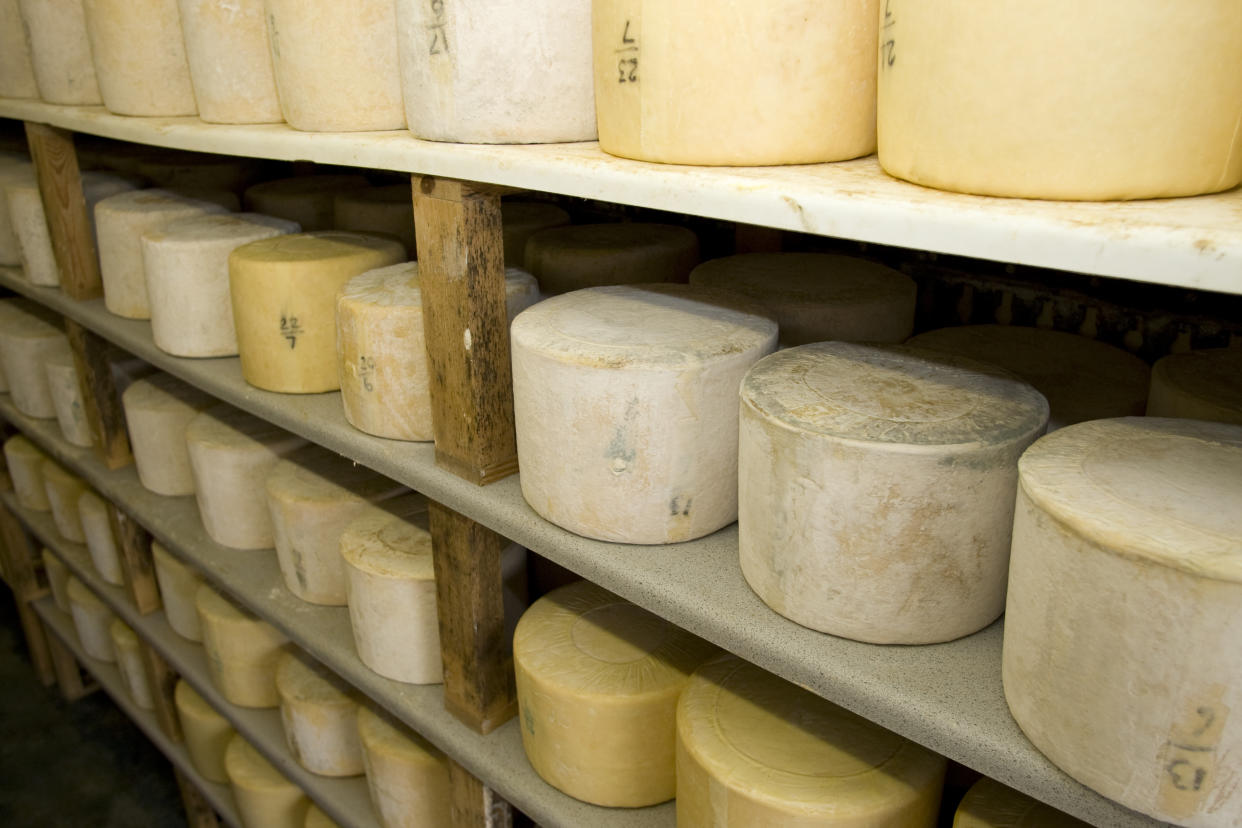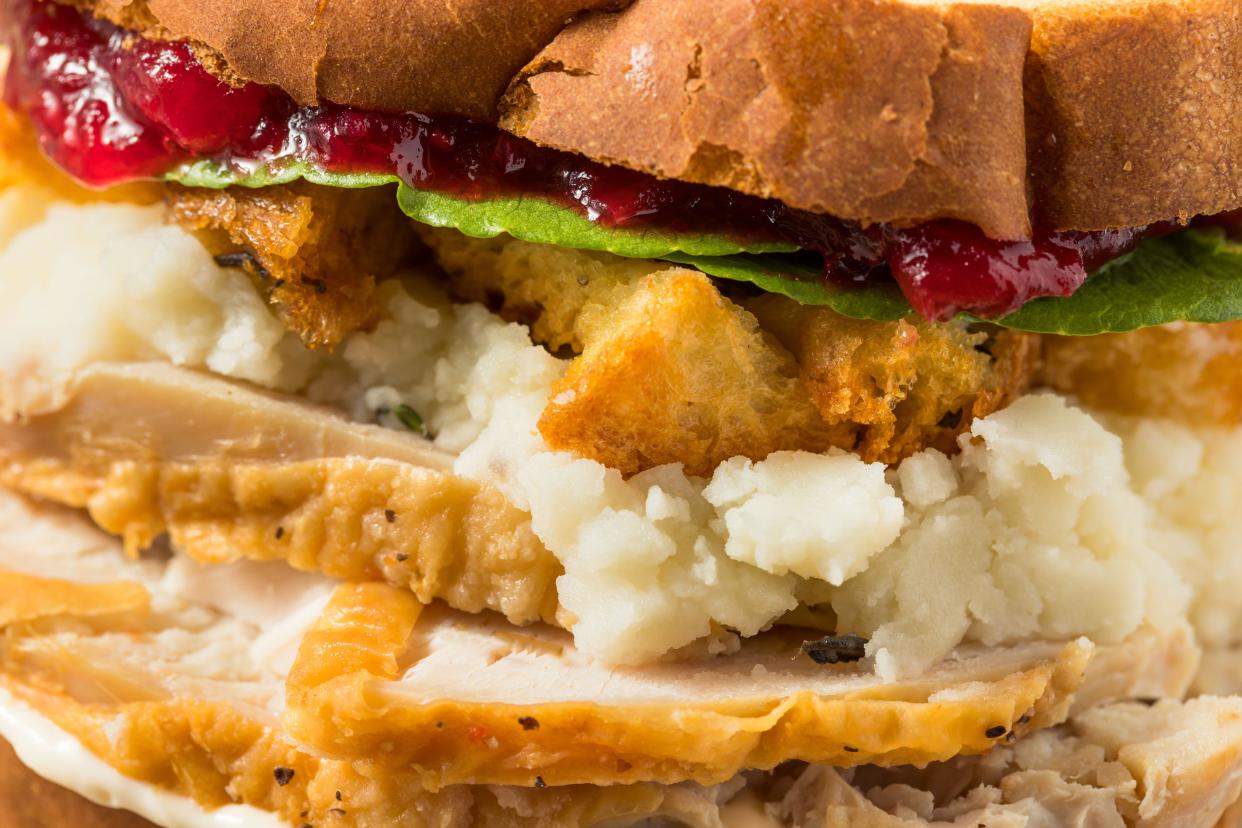30 E.coli cases confirmed in UK outbreak after cheeses recalled over contamination fears

Health officials have confirmed 30 cases have been identified of a specific strain of E.coli in the UK amid warnings the public should not eat four types of cheese which could be contaminated with bacteria that can cause food poisoning.
On 24 December, the Food Standards Agency (FSA), announced Mrs Kirkham’s Lancashire Cheese Ltd had taken the precautionary step of recalling various products because they may be contaminated with a specific type of E.coli bacteria called Shiga toxin, also known as STEC or VTEC.
On Wednesday, the FS confirmed 30 cases of the specific strain had been found in the UK. The UK Health Security Agency told Yahoo News no direct link had been confirmed with the identified cheese products but that investigations were ongoing.
Symptoms caused by STEC organisms include severe diarrhoea - diarrhoea with blood - as well as abdominal pain, and sometimes haemolytic uremic syndrome, (HUS), a serious condition that can lead to kidney failure and can even be fatal.
The award-winning Mrs Kirkham's is the last raw milk Lancashire cheesemakers in the world. The company confirmed on its website that it had "taken the difficult decision" to recall all products sold between 1 October and Christmas Eve.
It said: "As a member of The Specialist Cheesemakers Association we are careful to always adhere to their code of best practice within our business. This recall relates to new testing techniques designed to better identify potentially dangerous strains of Shiga Toxin producing E.coli. Unfortunately, these new testing techniques are not currently industry standard. As a result, despite rigorous and thorough testing throughout our production processes, the potential risk to product safety was not previously identified. We are now unfortunately in a state of limbo until testing laboratories reopen and resume testing."
We are warning consumers not to eat four Mrs Kirkham’s Lancashire Cheese which has been recalled because they may be contaminated with a specific type of E.coli bacteria called Shiga toxin producing E. coli, also known as STEC or VTEC. @UKHSAhttps://t.co/OAWCwuqbm6
#EColipic.twitter.com/80ZSW4uE8H— Food Standards Agency (@foodgov) December 27, 2023
The four cheeses being recalled are Mrs Kirkham’s Mild & Creamy Lancashire, Mrs Kirkham’s Tasty Lancashire, Mrs Kirkham’s Mature Lancashire and Mrs Kirkham’s Smoked Lancashire.
30 confirmed cases of STEC
Amy Douglas, incident director for Gastrointestinal Infections and Food Safety Division at UKHSA, said in an updated release by the FSA on 27 December: “There have been at least 30 confirmed cases of this specific outbreak strain of STEC in the UK.
“Many of us will be travelling for Christmas, but if you are unwell you should avoid visiting people in hospitals and care homes to avoid passing on the infection in these settings. Do not return to work or school once term restarts, until 48 hours after your symptoms have stopped.”
Douglas also urged anyone who may have come into contact with the cheeses to wash all surfaces thoroughly and to get rid of any other cheese that may have come into contact with the affected products.
Tina Potter, head of incidents at the FSA, added: “We are aware that this recalled product may be popular over the festive period, especially as it has been sold as part of a Christmas gift hamper and so we are urging consumers to check whether they have bought or been gifted this product.
“Due to this outbreak of E.coli O145 we are urging all consumers to ensure they follow the advice in the product recall notices, which details all of the products which may pose a risk. Anyone who has bought any of the four products can return them for a full refund. Point of sale notices will be displayed where the products were sold explaining why they have been recalled and what to do if they have been purchased."

Tips for eating Christmas leftovers
If stored properly, used within a short time, and cooked through where required, there should not be a risk of food poisoning for most people wanting to enjoy Christmas leftovers.
GP Dr Babak Ashrafi from Asda Online Doctor said people should use their common sense. He said: “It is generally safe to keep food for a couple of days after Christmas, as long as it is refrigerated and stored properly. But use your best judgement before eating any leftovers, and be sure to throw away any food that doesn’t look or smell safe to eat.
“Leaving meat at room temperature, or not refrigerating it at low enough temperatures, can encourage bacteria to grow and lead to foodborne illnesses.
“Certain bacteria, such as Salmonella and E. coli, thrive on meat and can make you very sick. Food contaminated with these bacteria can lead to vomiting, diarrhoea, abdominal pain and, in very serious cases, require medical treatment.”


